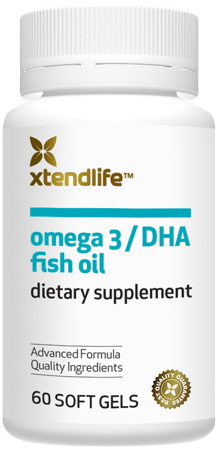When you shop for cereal or bread do you pick up the products labeled “enriched” and feel good about the extra nutrition you are bringing home? If you do, we are going to have to break some bad news to you. You are probably missing out on much healthier versions of the same foods, and by that we mean the original versions before they were processed, refined, and then “enriched.”
Enriched foods are paradoxes that will make you scratch your head when you get what’s really going on. Manufacturers refine and process products like bread and cereals to make them cheaper and last longer. To do this they have to strip them of things like fiber and all of the wonderfully rich natural nutrients that nature intended them to have. Then they add a synthetic version of some of the same nutrients back into the product. Does that sound a little strange to you? Wouldn’t the original, natural version be healthier?
Fortified Vs Enriched Foods
There are also fortified foods, which are something like enriched foods, but not quite. In the case of fortified foods manufacturers add nutrients that the original food never had – like calcium in orange juice. Other examples of fortified foods are milk with vitamin D and cereals that contain omega-3 fatty acids. Words like “fortified” and 
The problem with enriched or fortified foods is not necessarily the fact that they are enriched or fortified, but the reasons why they had to be in the first place. Enriched foods, in particular, are usually refined first, which means they have had all of their nutrients taken away for manufacturing purposes. Beyond that, they are also usually loaded with sugar, hydrogenated fats, and empty calories.
They are made “prettier” with artificial colors and flavors, and then, to make them last longer than their natural shelf-life would allow, preservatives are added as well!
Maybe now they don’t sound so tempting after all. Unfortunately, that’s not the end of the story. The refining process also robs food, and, as a result, your body, of fiber. Fiber is one of the most important tools you have to keep everything inside your body working properly. To put it bluntly, things get clogged and sluggish when you don’t have enough fiber in your system allowing for the build-up of toxins.
As if that’s not enough, another problem with refined foods is that they produce blood sugar spikes. If after eating a certain food your blood sugar shoots up too fast t you will experience a “sugar high” for a short while which inevitably ends in sluggishness and fatigue.
When you eat foods that digest slowly, foods that don’t cause blood sugar spikes a moderate release of insulin takes place. Insulin helps deliver glucose to your cells and controls the uptake of amino acids (the building blocks of protein) into muscles. This is the way your body was meant to work.
Perhaps it’s better to follow the advice of fitness guru, Jack LaLane, who just turned 91. When talking about food he has this to say, “If a man makes it, spit it out!”. What LaLane is suggesting is what any good nutritionist will tell you – whole, natural, unprocessed foods are what nature intended for your body. Of course, eating natural foods in this “fast food” day and age will mean making an extra effort, like shopping more often for fresh foods. But isn’t a little extra effort worth it if it means you will feel better and be healthier? We think it is!
That’s all for today. Next time we’ll reveal the four key things you need to consider when choosing health supplements.
Wishing you good health and happiness,

